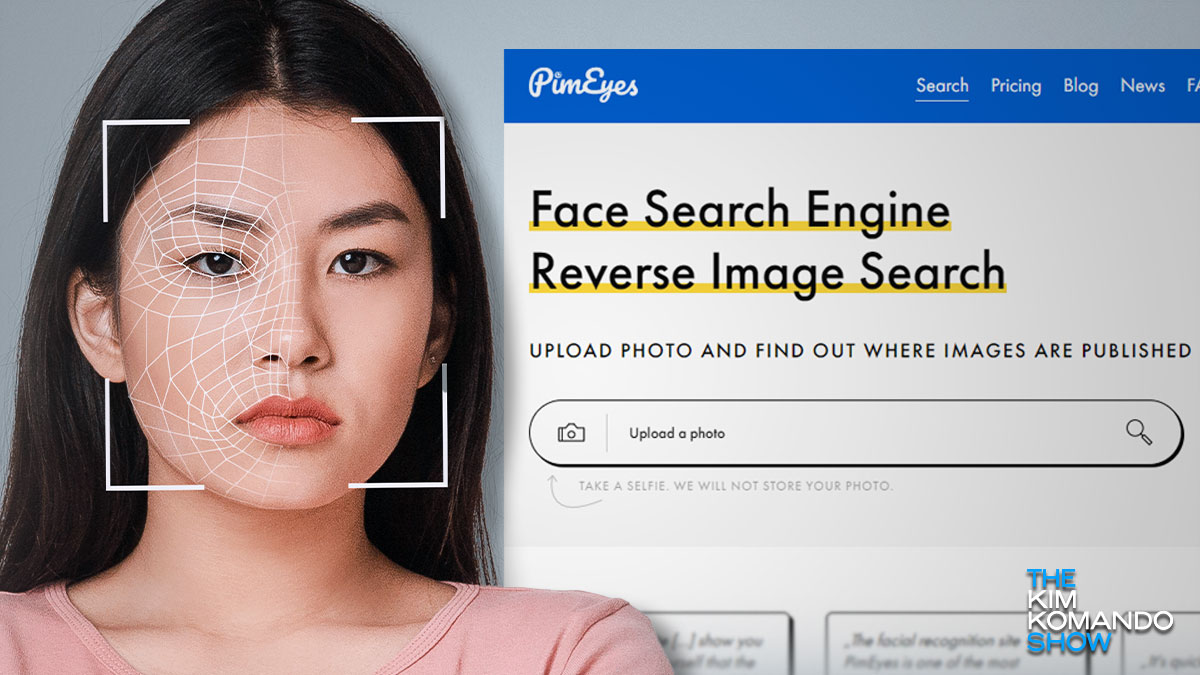Facial recognition software, once a mainstay of science fiction, is now part of our daily lives. We use it to unlock our phones, verify our identities online, and even get through the airport faster.
While useful, this technology can be used without your permission, as a recent $650 million class action lawsuit against Facebook shows. The social network used facial recognition to suggest tags in photos, which violated a privacy law. Tap or click here to see if you can expect a paycheck in the mail.
Like it or not, your face is out there on the internet. If you’ve ever uploaded photos to social media or any other website, chances are your image is circulating. And a facial recognition site is gaining popularity to make it easier to find a person’s photos on the web.
Here’s how it works
PimEyes uses facial recognition, artificial intelligence and machine learning to perform reverse image search. Just upload a photo of a person and you will come across more photos of that same person. Of course, you’ll probably also see pictures of people who look like this person too. No technology is perfect after all.
PimEyes was launched in 2017 and describes itself as “an excellent tool for checking copyright infringement”. When it comes to scammers, hackers, and identity thieves, the site says it gives users “the tools to take action against their attackers.”
Although the idea of searching for people using their images sounds daunting, this tool can be useful. You can upload photos of yourself and find images on the Internet. This can help you find out if your image is being used online without your permission. You can then find your face and request that your image be removed. It may not be easy, but at least you’ll know where to start.
Related: Delete your selfies from ID.me – You don’t need them to do your taxes
More than just reverse image search
PimEyes only searches the open web. He does not watch through social media, private accounts or video platforms. It works much like a reverse image search you might do on Google.
Unlike Google, however, PimEyes claims it can find photos of you in different settings, with different people, or even with a different haircut, mask, or sunglasses. The search engine only focuses on your face, not the entire image. You may come across photos of yourself that you may have forgotten or didn’t even know existed.
Would you like to try it ? Here’s how:
- Go to pimeyes.com and tap or click Upload a photo in the search bar to locate a photo on your device.
- You can also use the camera button to take a new photo. PimEyes says it won’t store your photo.
- Select a photo, accept the terms and conditions and the search will begin.
Be warned that the free options only go so far. After performing a search, you can select a photo to see the options – and that’s where you’ll hit a paywall. If you want to open the website the image appears on, open the image itself, or exclude the image from public results, you will need to subscribe to a payment plan. You’ll also need to pay if you want to filter results, upload an image, or set alerts.
Pricing starts at $29.99 per month or $287.90 per year and goes up to $299.99 per month or $2,879.90 per year. Depending on your level, you have access to limited or unlimited searches, additional search tools, customer support, and staff who can draft and submit DMCA and GDPR requests on your behalf to remove your images.
You can request to remove an image from the PimEyes search index, but this will not remove it from the website where it was found. Go to pimeyes.com/en/submit-delete-request and fill in the information to have an image removed from the site. There is also a form to opt out of your data at pimeyes.com/en/opt-out-request-form.
Although PimEyes encourages you to only search for images of yourself, nothing stops anyone from using the site to search for someone else.
Our advice: there’s no need to pay for the service unless you really need help deleting photos of yourself from the web, but it’s worth checking out what you can find using the free version . You can at least get an idea of how prolific your face is on the internet.
keep reading
Facial recognition to make smart glasses even more of a privacy nightmare
Remove your address and phone number from Google search results
How to Get Photos of Your Home on Zillow, Redfin, and Realtor.com

